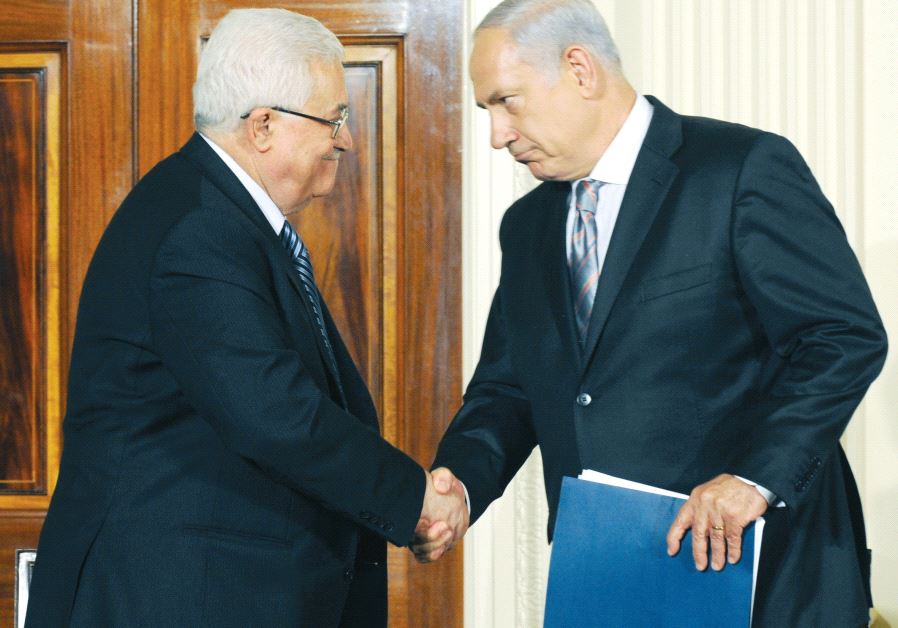Encountering Peace: Two nation-states, two national minorities
I propose, therefore, that the future peace agreement ensure two nation states with two national minorities.
 PM Netanyahu and President of the Palestinian Authority Mahmoud Abbas in Washington, 2010
PM Netanyahu and President of the Palestinian Authority Mahmoud Abbas in Washington, 2010